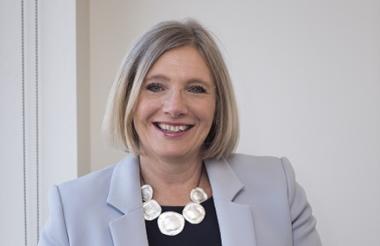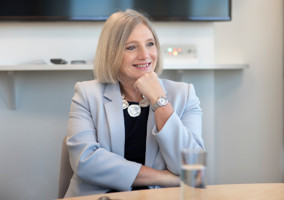The Charity Commission has seen an increase in applications for charity registrations, its chief executive has said as she suggested more help for those closing.
Helen Stephenson said some charities have a “lifecycle” and more help could be given to those organisations wanting to wind down and transfer their assets elsewhere.
Speaking at NPC’s Ignites Conference 2023 yesterday, Stephenson also emphasised the importance of managing relationships between trustees, including those from diverse backgrounds.
She described a “challenging seven years” as CEO, as she is due to step down in July 2024.
Some charities have a ‘lifecycle’
Stephenson spoke about the regulator’s work to release some money from dormant charitable trusts back into the sector.
She said some charities have a “lifecycle” and more help could be given to those organisations wanting to wind down and transfer their assets elsewhere.
There has been an increase in applications for charities this year, she said, with 48% of 8,583 successful in the year to March 2023.
“Having a point where people can, especially charities that are set up in response sometimes to personal bereavement or an issue, often there’s a kind of lifecycle there,” she said.
“I think sometimes people would appreciate the help to go ‘do you know what, we’ve done our job, maybe it’s time to close now and pass on to others’.
“At the same time as some charities are really experiencing stress and difficulty, others are applying to register.
“In fact, the numbers have gone up year-on-year of people applying to register to be a charity and even this year, we’re seeing a slight upturn in the number of people applying.
“So, I think I would love more support for organisations to say ‘do you know what, I think we’ve done our job, it’s time to step back’.”
Managing trustee relationships
Asked which top qualities she would give to trustees, Stephenson said “don’t fall out”.
“[Trustees] have to pull together to run that organisation in a way that is commensurate with the way in which the purpose of the charity was set up,” she said.
“So, one of the things that I have really seen as being very damaging is disputes in charities, often between trustees, sometimes between trustees and the executive – it’s so damaging.”
She said that “having the confidence to bring together a group of people not necessarily all from the same background, people from diverse backgrounds” is a good skill.
A diverse group “when they come together to make decisions, they’re better decisions”, she said.
“I think one of the superpowers would be to open up trusteeship to as many people as possible who could benefit from it, because I think there’s a real benefit to people as well as a service to our society,” she said.
‘A really challenging situation for charities’
Stephenson said: “It’s probably no surprise that really my thoughts at the moment are very much around change, whether that’s organisation change, whether it’s personal change, or whether it’s change that we’re seeing in the sector, or indeed in society.”
She said throughout her tenure the sector has faced “rapid change” whether that is technological change, political change, social change or national disasters.
“That impact into individual organisations, into the sector, means it’s been a very, I think, challenging seven years.”
She added: “It really is probably the most difficult times [...] for an operating environment for any organisation, not least a charity.
“This is, for me, the first time where I’ve seen what I would consider a perfect storm, which is the rising costs, the increase in demand in services and the downward pressure on income. And all of those, I think, for me, make this a really challenging situation for charities.”
She said the changing context charities are operating in, means the regulator’s advice has evolved.
The regulator has had to “recognise that we can’t just keep doing things the same way” and one of the key differences it has tried to make is writing for “busy people who are trying to run their charities and try to just do a decent job” rather than for people who need accountancy or legal backgrounds.
Stephenson added: “I do still have a real faith in the resilience and the innovation of the charity sector” and “its longevity, and its crucial role in our society.
“I think my role in the Commission has been to protect that.”
Related Articles











